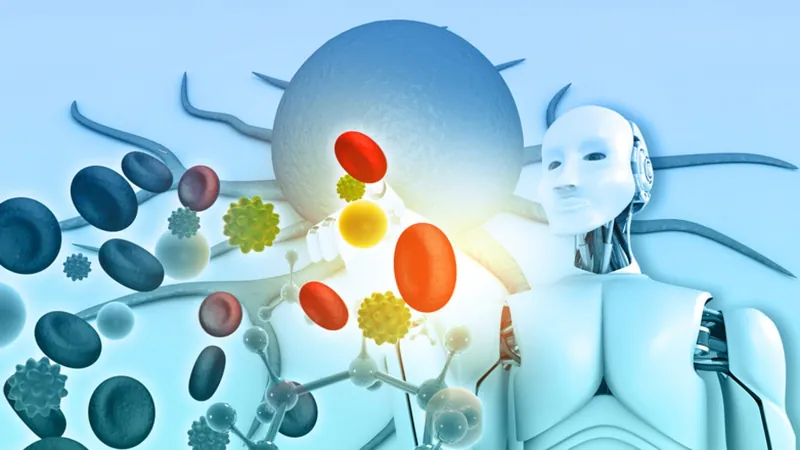
Revolutionizing Organ Transplant Care: How Molecular Testing is Enhancing Patient Lives
2025-04-28
Author: Rajesh
Transforming Post-Transplant Monitoring
Imagine undergoing a life-saving organ transplant with a simpler, less invasive follow-up process! Recent breakthroughs in molecular testing, specifically through donor-derived cell-free (dd-cf) DNA and gene expression profiling, are significantly enhancing the quality of life for heart and other organ transplant recipients. These cutting-edge tests not only lower the need for invasive biopsies but also empower patients with more accurate monitoring.
Challenges in Current Practices
Despite their growing popularity, many transplant centers still resort to traditional invasive biopsies even when molecular tests are available. At the Annual Meeting of the International Society of Heart and Lung Transplantation, Dr. Jeffrey Teuteberg from Stanford University presented compelling data suggesting that performing extra biopsies before molecular test results are available does not improve patient outcomes.
Accurate Risk Assessment and Medication Reduction
Dr. Teuteberg advocates for the transition to noninvasive molecular testing. These innovative methods can effectively identify patients at risk of organ rejection while allowing for a reduction in antirejection medications among those at low risk. "Post-transplant medications, while necessary, can lead to serious side effects like infections and kidney impairment," he noted, emphasizing the potential health benefits of lowering medication dosages.
The Power of Noninvasive Molecular Tests
Tools like CareDx’s AlloMap and AlloSure-Heart are revolutionizing patient monitoring. By detecting biomarkers such as donor DNA in blood samples, these tests can identify early signs of rejection, even distinguishing between different rejection types. This rapid detection ensures that patients receive the most appropriate treatment without delay.
Streamlining Follow-Up Care
A staggering 24.5% to 36% of nearly 2,000 heart transplant patients in the U.S. underwent unnecessary additional biopsies, with no improvement in their health outcomes. This highlights the urgent need for integrating molecular testing into standard post-transplant care. Dr. Teuteberg further pointed out, "Patients often struggle to travel to transplant centers for ongoing evaluations. Remote monitoring through molecular tests offers a convenient and more accessible solution, democratizing care for heart transplant recipients."
A Bright Future for Transplant Patients
The advancements in molecular testing are not just a technical upgrade; they represent a monumental shift in how we approach organ transplantation. By embracing these noninvasive techniques, healthcare providers can significantly enhance the patient experience, paving the way for safer and more efficient post-transplant care.







 Brasil (PT)
Brasil (PT)
 Canada (EN)
Canada (EN)
 Chile (ES)
Chile (ES)
 Česko (CS)
Česko (CS)
 대한민국 (KO)
대한민국 (KO)
 España (ES)
España (ES)
 France (FR)
France (FR)
 Hong Kong (EN)
Hong Kong (EN)
 Italia (IT)
Italia (IT)
 日本 (JA)
日本 (JA)
 Magyarország (HU)
Magyarország (HU)
 Norge (NO)
Norge (NO)
 Polska (PL)
Polska (PL)
 Schweiz (DE)
Schweiz (DE)
 Singapore (EN)
Singapore (EN)
 Sverige (SV)
Sverige (SV)
 Suomi (FI)
Suomi (FI)
 Türkiye (TR)
Türkiye (TR)
 الإمارات العربية المتحدة (AR)
الإمارات العربية المتحدة (AR)